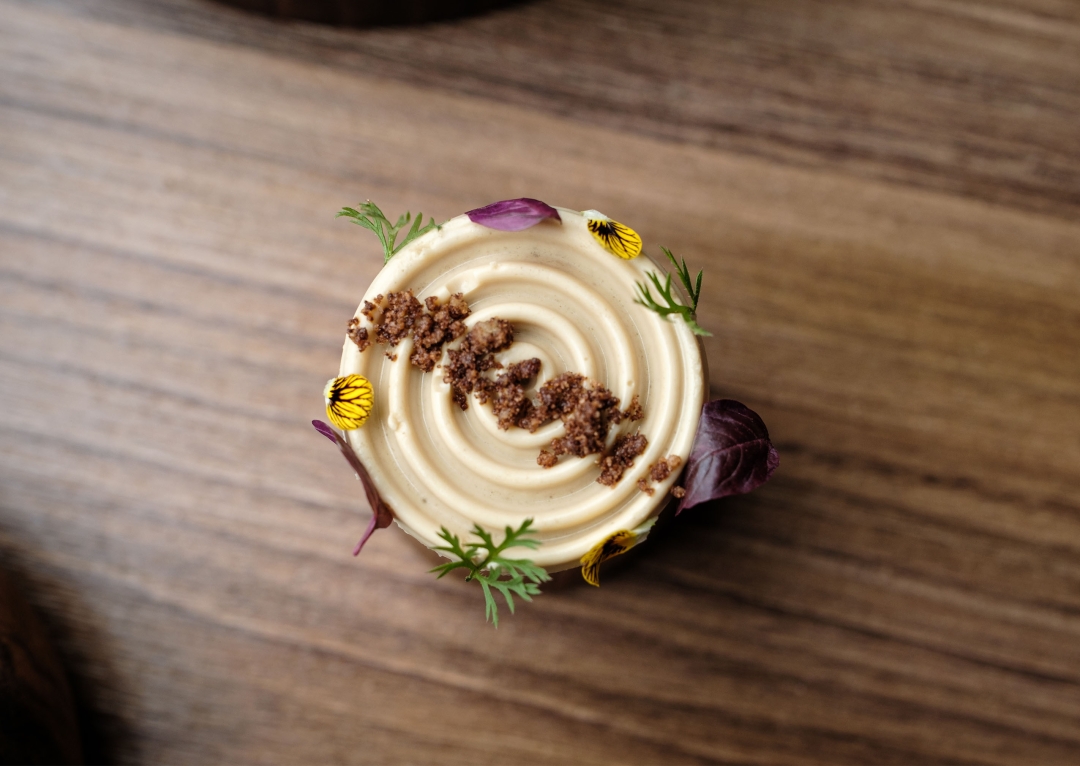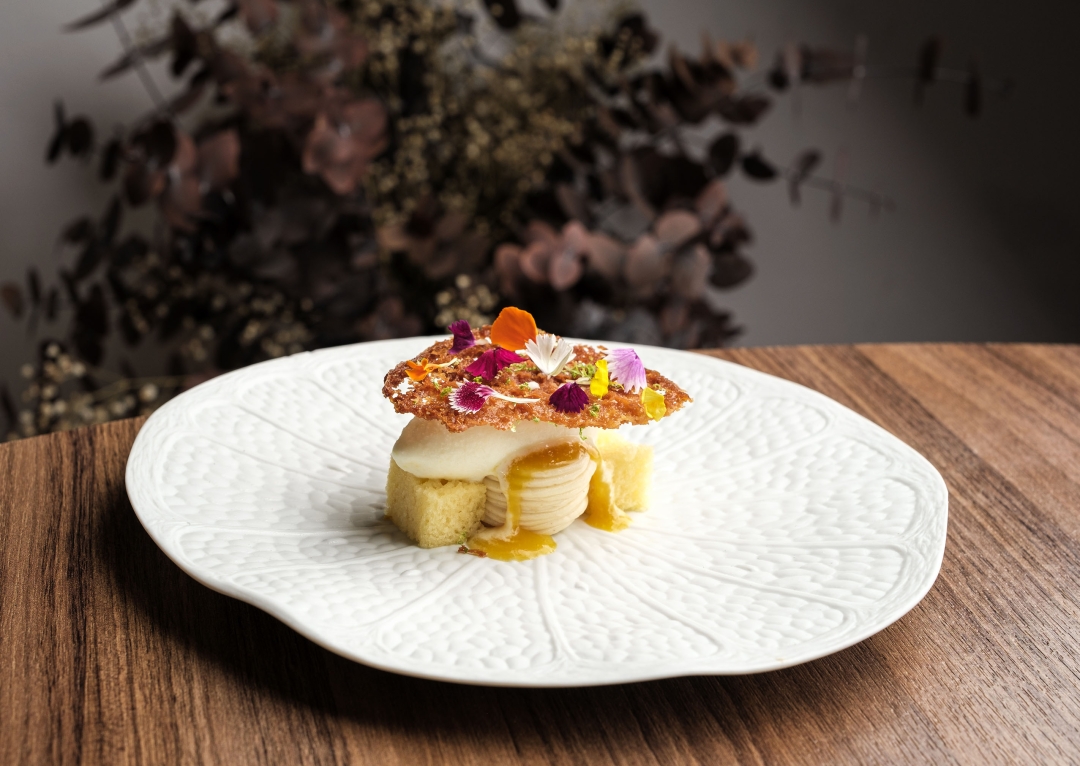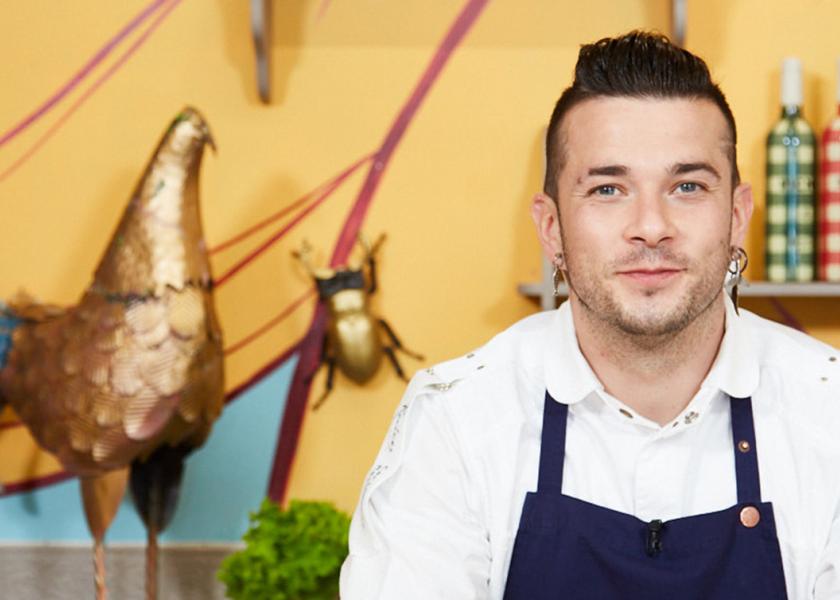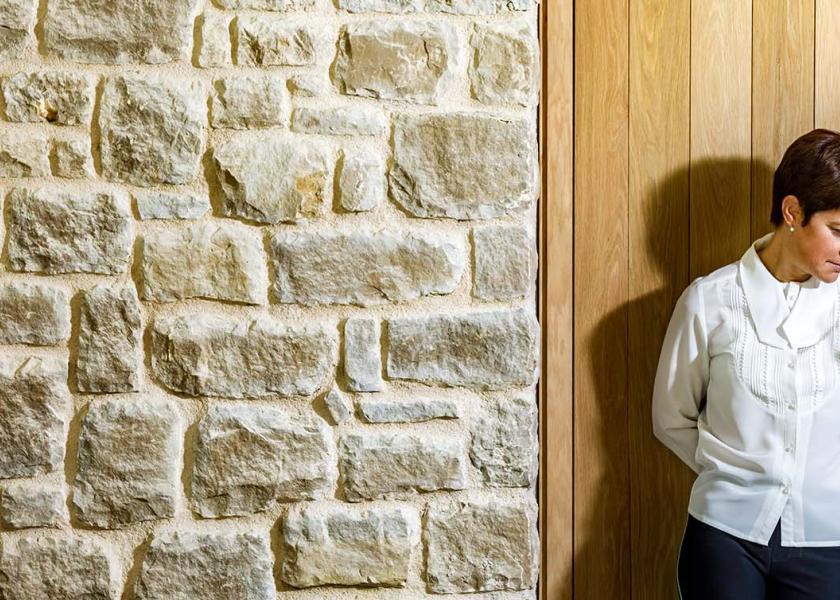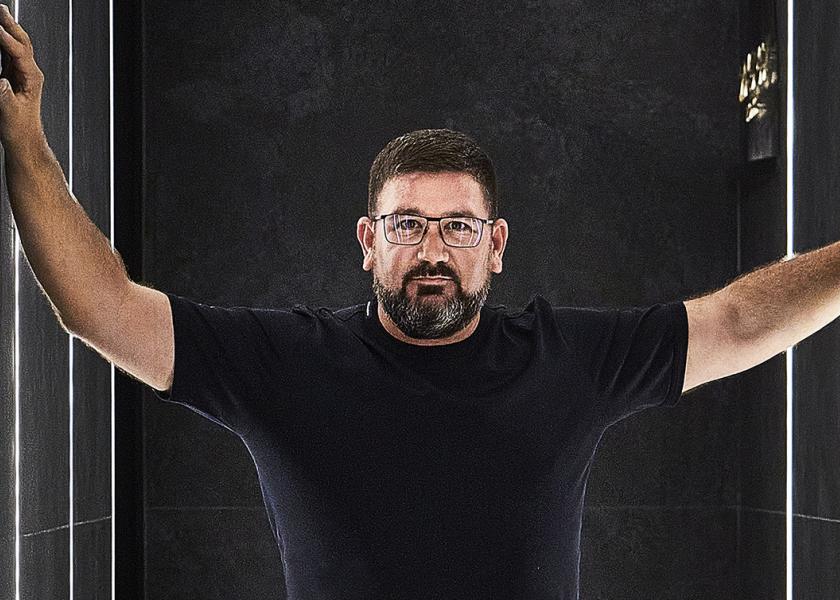Vicky Sevilla
The youngest star
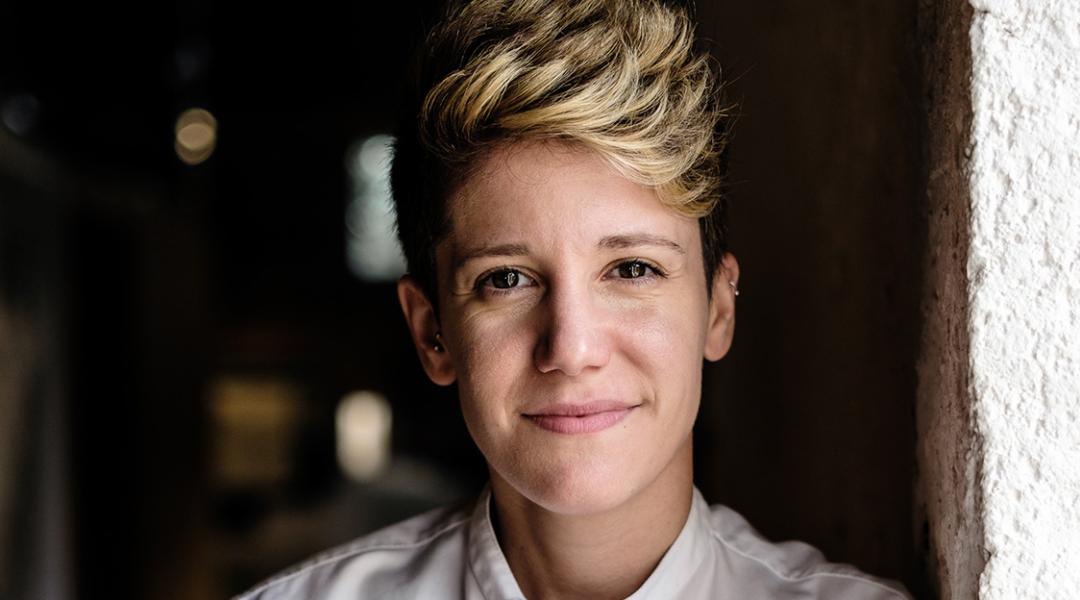
Vicky Sevilla’s career is dazzling. She admits that at the age of 17 she didn’t even know how to fry an egg, but at 29 she’s become the youngest chef to receive a Michelin star. It’s never too late to discover your talent. Through ‘Arrels’, a restaurant located in Sagunto —far away from large cities—, she’s turned memory into a key part of her dishes and invites her guests to 'eat' her memories.
When they discover their talent, some people become unstoppable. This sums up the story of Vicky Sevilla (Cuart de les Valls, 1992), the spanish youngest chef to win a Michelin star. In her case, the discovery happened while working at a restaurant in Formentera, where she lived during a period of professional uncertainty. There, she realised she had a talent for being in the kitchen. Her prediction wasn’t far off the mark.
Gastronomy and Vicky Sevilla finally found each other. After studying at the Hospitality School of Castellón, she worked at Susi Díaz’s La Finca (Elche) and Begoña Rodrigo’s La Salita (Valencia). “Begoña is a role model to me: as a businesswoman, as a chef, and as a person,” she admits. Finally, at just 25, she took the plunge and founded her own restaurant: Arrels (Sagunto). A place where she offers “rooted cuisine that’s local, seasonal, and based on memory.”
Which is the secret to becoming the youngest chef to win a Michelin star?
The secret can be summed up as a lot of work, perseverance, and dedication. I think that without these three cornerstones, I wouldn’t have achieved anything. I’d also add one more factor: the need for a good, committed team, that believes in the project and rows in the same direction as you.
And how are these recognitions useful to you?
Awards help people to get to know you, or at least this has been true in my case. When we opened the restaurant, since it’s not in a large city, but in Sagunto, we struggled to fill it. Recognitions and awards have given us visibility and have slowly allowed more and more people to discover us; the restaurant has reached its capacity and even has a waiting list.
“I can’t picture a day going by without being connected to gastronomy, whether it’s cooking at home, at work, or eating out at a restaurant”
You took some time to find gastronomy, but today, what does it mean to you?
Cooking is my world. It’s my day-to-day, my job, and my hobby. I can’t picture a day going by without being connected to gastronomy, whether it’s cooking at home, at work, or eating out at a restaurant and enjoying a good meal.
How would you define your cuisine? What inspires you to create your dishes?
Mine is a rooted cuisine that’s local, seasonal, and based on memory; all this plays a fundamental role when creating recipes. There are nods to traditional recipes inspired by my memories, which I always try to add my personal touch to, and in many cases, update them with new techniques. We try to make our dinner guests feel like they’re in the Mediterranean, in the Valencian area of Camp de Morvedre, and that, in a way, they’re eating my memories.
Speaking of recipes, is there anything you’d never ever cook?
I’d never cook dog meat. It’s quite common in Vietnam, but it’s something I’d never do.
And do you have a favourite dish?
I could live off eel nigiri. I love them!
What skills does one need to tap into their talent in the kitchen?
I’d emphasise self-sacrifice, both physically and personally. To sacrifice, I’d add two more strengths: vocation and enthusiasm. Without them I think it’s impossible for things to go well.
And you admire the talent of…
Begoña Rodrigo (La Salita, Valencia). She was able to open her restaurant without investors, and thanks to hard work, has reached great heights. She has a really clean kitchen and makes really good tubers, vegetables, and fish. Begoña is a role model to me: as a businesswoman, as a chef, and as a person.
What advice would you give someone who wants to become a chef?
The best advice is that the time always comes, you just need to be patient and work hard to achieve your goals. It’s something I’ve experienced myself. At the beginning, when I opened Arrels, I didn’t fill it and I was always worried, until I realised it was a question of time. You must also be aware that some people may put in a lot of effort, but unfortunately, won’t achieve the expected results. I think it’s important to keep this in mind because we’re a society that isn’t used to failure or frustration.
What’s the best and worst thing about your profession?
The worst is the time you sacrifice and that you don’t spend with your loved ones. For example, the birthdays you miss out on because you can’t be with them. And the best part is the satisfaction of a dinner guest going home happy, and above all, that they want to come back. One of the most beautiful things that has happened to me is for dinner guests that are halfway through a menu to decide to book another reservation to come back. That feeling is priceless.
“Every time I travel abroad, I realise what we have in Spain. There’s no other gastronomy in the world like it”
If you were born again, would you do the same or would you change anything?
I wouldn’t change absolutely anything of what I’ve experienced. I don’t think I’d know how to do anything else, but I wouldn’t want to work anywhere other than a kitchen.
Would you say these are good times for Spanish gastronomy?
The prices of raw materials are going up, but in general, I believe so, that we’re going through a good period, and the fact that dinner guests increasingly value our work more. Every time I travel abroad, I realise what we have in Spain. There’s no other gastronomy in the world like it.
Tell me the best restaurant you’ve eaten at and one that’s on your bucket list.
The best place is the one you always go back to. I can’t tell you a top favourite, but I love restaurants like La Salita, Ricard Camarena, Nozomi, Alkimia or DiverXo. There are so many… And Can Fabes or El Bulli will always be on my bucket list, but it’s impossible because they no longer exist.
At this point in your career, what’s something you still dream of?
I’d love to open a hotel and for the restaurant to be a part of it. To feed my friends, for them to stay at home, and to make them breakfast. It would be a dream come true.
